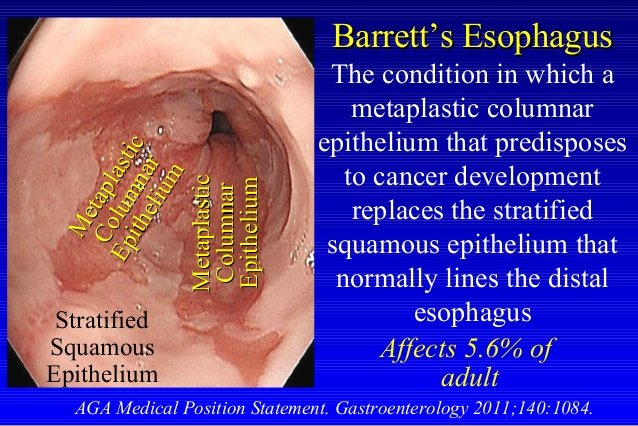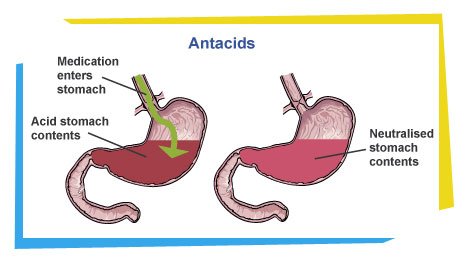Heartburn - When are recommended appointments and investigation to a specialist
Heartburn is represented by intensely unpleasant sensations when you feel sometimes too heavy after a meal, after exercising, after a diet rich in meat, sweets and fats. You should know about how can be serious in this context. It's due only to a meal too rich or problem is actually worse?
Heartburn, or Pyrosis, as they are called in medical terms, are annoying, no matter when they occur or why. They can spoil our mood and creates a feeling of deep discomfort. If you're dealing with such burns but quite often, you've probably wondered how serious they are and how to appease them. Be just diet to blame, or to be a disease of the digestive tract? Sometimes, even if you are sure what bothers you is a burn, it can be difficult to treat and the appellants are almost the rule. What is the attitude the best: an antacid, a doctor's appointment, or announce an emergency service?
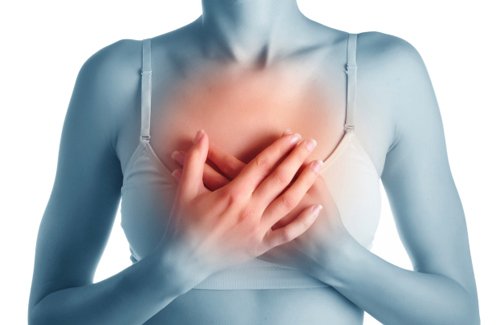
Source
Heartburn has many faces, many issues must be known in order to reach a decision therapeutics. Sometimes symptoms resolve only through lifestyle changes, sometimes they stubbornly bother us even after a long specialized treatment. But experts have prepared us some information useful for heartburn can be prevented or, if it occurs, will not catch us completely unprepared. How to deal with it and how to make felt as little presence , we learn further.
Overview
- About Heartburn
- Is heartburn or a heart problem?
- Write down the time when appear the symptoms
- Risk factors
- Burning may occur and normally?
- When are recommended appointments to a specialist?
- How to investigating such a condition?
- Heartburn treatment
About Heartburn
Heartburn, or acid indigestion, is a symptom and not a disease itself. They actually indicate gastroesophageal reflux disease (GERD), an individual pathology characterized by aggression acidic gastric juice on the esophageal mucosa. That is why we are dealing with heartburn: gastric juice, which is normally kept in the stomach, reach, for various reasons, into the esophagus. The differences in pH between the two compartments of the digestive tract are enormous but the stomach is highly acidic environment, while esophagus has a pH much increased.
The gastric esophageal mucosa actually can be chemically burn. If this aggression is constant and gastric juice can penetrate to blood vessels in the lining of the susceptible, the injuries are so severe that lead to digestive bleeding manifested by vomiting blood. Healing these areas can not be right, especially if chemical stimulus act persist, so will appear altered areas of histologically. This state is called "Barrett's esophagus" and describes metaplasia esophageal lining. This change is not the beneficial characteristics, Barrett's esophagus is one of the most important precursors of esophageal cancer.
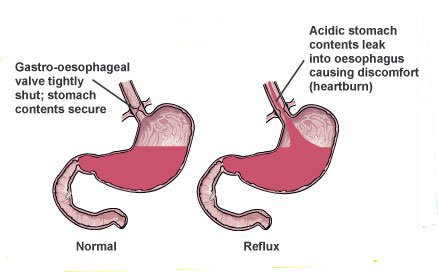 >
>Source
But why gastric acid is allowed into the esophagus passage? Most often it is the lower esophageal sphincter that is in hypotonia. It is a muscle structure, located at the junction between the esophagus and stomach and whose role is precisely to close tightly and prevent reflux of stomach. But when the sphincter does not function properly, there is nothing to stop the free passage of gastric contents from the stomach into the esophagus, which will trigger the entire pathological process described above. Hypotonia may occur as a result of systemic diseases or may be caused by improper eating habits: meals too rich, very dense meals (sphincter reach to open very often).
Is heartburn or a heart problem?
But if it's just a special heartburn, gastroesophageal reflux disease or acute heart disease? Experts recommend to be careful and other symptoms accompanying. If only burning that occurs in correlation with rich meals, most likely the problem is not different nature and can be solved if you eat less next time.
There are three questions that would be good to answer if you want to evaluate for themselves the nature of the symptoms:
- You sweat?
- Do you have palpitations?
- You dyspnea (shortness of breath)?

Source
If you answer yes to these three questions is safest to consult a doctor to rule out a heart problem. Digestive disorders and the heart of nature can be sometimes quite difficult to distinguish because of both the location is quite diffuse. There were few cases where a heart attack, for example, was mistaken for a perforated ulcer, or vice versa. This is why experts insist that if burns are not unique, but come amid the backdrop of general symptoms and altering health, ask your doctor for the correct diagnosis of the disease, investigation and imposition of appropriate treatment.
Note when occur the symptomes
Experts believe that it is important to keep in mind the time of occurrence of burns. If heartburn occurs after eating a lot, but not replicated in other situations most likely not have to think about an issue as important as gastroesophageal reflux disease. As long as there are no other symptoms accompanying it is not more than a simplaindigestie.
If you have doubts, however, the safest is to present yourself to see a specialist. In case the burns are accompanied by chest pain occurred after meals, gastroesophageal reflux disease probability is much higher. It is not the symptom of certainty. Localized Retrosternal pain localized can occur in many heart problems, and their importance should not be minimized.
Although the symptoms are not specific enough, and sometimes it is difficult for doctors to determine which is the correct diagnosis, patients can better assess their condition and accusations if they know more about the characteristics of classic heartburn. Specialists describe burns uncomplicated way: uncomfortable is located under xifoid Appendix and climb retrosternally that occurs after meals abundant after excessive consumption of chocolate, coffee and food very spicy, or after exercising unusual (state head in hands leaning on the belly). This sensation disappears within minutes of taking an antacid and has a tendency to recurrence, the presence of a balanced diet and if the triggers are avoided.

Source
Risc Factors
Risk factors are those that favor the appearance of symptoms and burns. Sometimes, to avoid them, especially in situations when heartburn occurs in isolation and not in the clinical presentation of GERD can cause the disappearance of symptoms.
Most often mentioned risk factors for heartburn are:
- Meals abundant, especially those containing fat, chocolate, caffeine, carbonated beverages, spicy foods, acidic fruits and vegetables (oranges, lemons, tomatoes, onions, hot peppers);
- Sleeping after eating;
- Consuming too late evening meals;
- Making strenuous activities after eating;
- Obesity or overweight;
- Pregnancy;
- Treatment with progesterone (lower esophageal sphincter tone can reduce);
- Hiatal hernia.

Source
Burning may occur and normally ???
Heartburn should never be considered as normal, regardless of when or in what context it appears. Whether it's a reaction after abundant meals or that occurs in their absence, heartburn is a warning of the body that need our attention that something needs to be changed, be it the living arrangements, diet or we should present as rapidly doctor. Many patients with heartburn have to significantly modify their diet and should exclude spices, coffee, citrus fruits, fried foods, fatty or spicy.
Frequent heartburn can greatly reduce patient quality of life. Impel them to make important lifestyle changes and sometimes even after they will not disappear. Dietary habits affect not only burns, but a very wide range of activities. In stiuatia that burns persist even after treatment, the risk of complications is also increased. Chronic esophageal mucosal lesions begin to heal abnormally, there is a state of chronic inflammation, the vessels are eroded.
Thus, metaplasia, inflammatory cell infiltration and mucosal bleeding occur very frequently. Everything comes to change in the esophageal lining, which is in continual suffering. The emergence of metaplasia areas can lead to esophageal cancer, a very serious complication, whose treatment can be even mutilating patient. Therefore, experts insist that heartburn never appears on a free esophagus, a fully functional sphincter. This problem should be treated, and the first step is a change in diet.
When are recommended appointments to a specialist?
Experts believe that patients need to consult a specialist doctor when the appeals to antacids frequently. Antacids is not enough to improve the situation, because it is obvious that if their use is necessary, there is already a chronic problem that can aggravate and complicate.
The burns are considered dangerous (and should be investigated) when they occur at least once a week. In such cases the patient is advised to see your doctor, especially if the situation persists more than 6 months and is not relieved by dietary modification and any lifestyle. Specialists who can handle such problems are family physician and gastroenterologist.
How to investigating such a condition?
If the doctor thinks gastroesophageal reflux disease symptoms are investigated by performing laboratory tests that will determine the degree of damage the esophageal mucosa, local pH and lower esophageal sphincter tone. These determinations usually follows a medical history, medical examination of the patient describes symptoms, onset and evolution, moments of flare and remission of burns and tells personal medical history.
Laboratory investigations are recommended if symptoms persist despite the regime change they propose to exclude other medical problems and include:
- Establish an endoscopy: this procedure allows direct visualization of the esophageal mucosa and gastric. An endoscope is a thin, flexible plastic tube that will be inserted through the mouth and down easily along the esophagus, allowing the doctor to observe any inflammatory changes and / or erosive. Facilitates endoscopy and biopsy tissue sampling, so its usefulness is double. In addition, you can see other injuries that may not have been originally suspected;
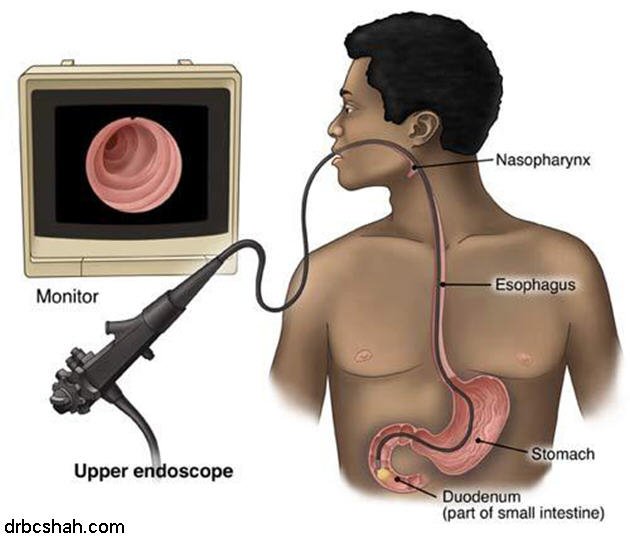
Source
Conduct contrast agents radiographs or other imaging tests that can determine whether or not the patient has a hiatal hernia, a condition that is characterized by reflux and heartburn and whose only treatment is surgery;
Esophageal pH monitoring: is one of the most important investigations used to diagnose gastroesophageal reflux disease. It involves inserting a tube through the nose which reaches the esophageal lumen and can directly measure pH levels at this level. Such a procedure can cause and severity of the disease and can be used to monitor progress in treatment;
Gastric emptying studies: can investigate during the stomach empties, if the food linger too long at this level and if the pressure is therefore increased intragastric and force open the lower esophageal sphincter
Gauges: is a test to analyze the functioning lower esophageal sphincter. It is recommended when is suspected existence of peristaltic or motility disorders of the esophagus;
Biopsy: tissue fragments consists of harvesting areas to determine the origin inflammatory lesion. The fragments will be analyzed by a pathologist microscopically and thus can be established and whether there are areas of Barrett's metaplasia (considered a pre-malignant risk);
Establish an electrocardiogram ECG is useful to rule out a heart disease, mainly heart attack;
Determination of blood pressure is especially useful if the patient had recurrent episodes of hematemesis.
Treatment of Burns
If the patient has uncomplicated heartburn, your doctor may prescribe usual antacids.. The most commonly used (and effective) are those based on sodium bicarbonate, magnesium hydroxide and calcium carbonate. They are considered classics antacids, having a good neutralizing power, but not interfere with acid secretion itself. But if clorhidropeptica secretion is very abundant, their efficiency is low and the patient will get stronger medication, gastric secretion inhibitors class.
A very important part of any regimen for heartburn and reflux represents a change in diet and lifestyle. In some cases heartburn, they may be only necessary therapeutic recommendations, then the symptoms appear spontaneously. In other cases, such changes can enhance the results achieved through treatment and can enable restoration of esophageal mucosal integrity. Whatever the purpose of the recommendations, the fact is that hygienic-dietary regimen has a very important role in the overall treatment of this disease. Thus, the most important tips include avoiding foods spicy, peppery, spicy, those with caffeine, those acidic or rich in lipids.
Patients should know that it is important to avoid eating more than 3 hours before bed, because otherwise digestion processes are not completed will be favored by the ebb and stretching back (or belly). Smoking, excessive alcohol consumption and stress are also risk factors that trigger these symptoms and which, once removed will stimulate recovery.
If the symptoms are triggered by exercise, the solution is not to avoid them but making their attempt on an empty stomach. Patients can take antacids before starting the exercise program and will notice an improvement in symptoms. If heartburn is caused by the existence of hiatal hernia, surgical treatment may be. There is another effective method of promotion and growth of the lower esophageal sphincter tone than surgery.
References:
http://www.everydayhealth.com/hs/heartburn/sanjay-gupta/heartburn-vs-heart-attack/
https://en.wikipedia.org/wiki/Heartburn
https://en.wikipedia.org/wiki/Antacid
http://www.mayoclinic.org/diseases-conditions/gerd/basics/definition/con-20025201
http://zantacadvice.co.uk/what-is-heartburn-and-indigestion/
